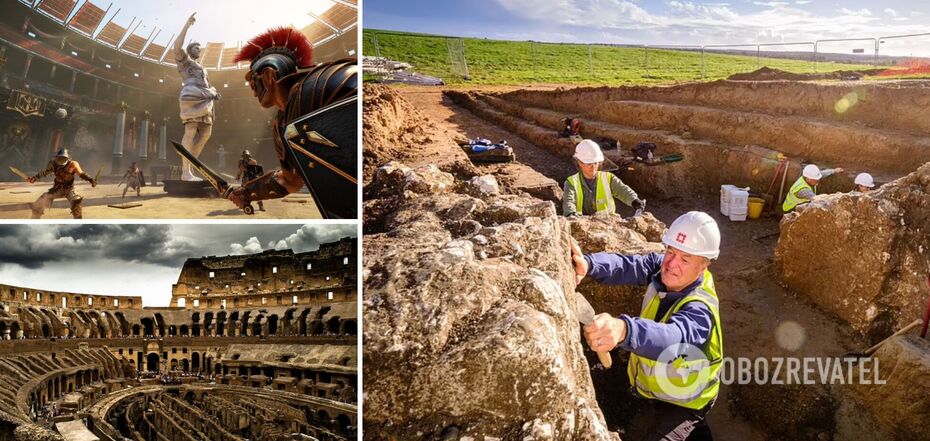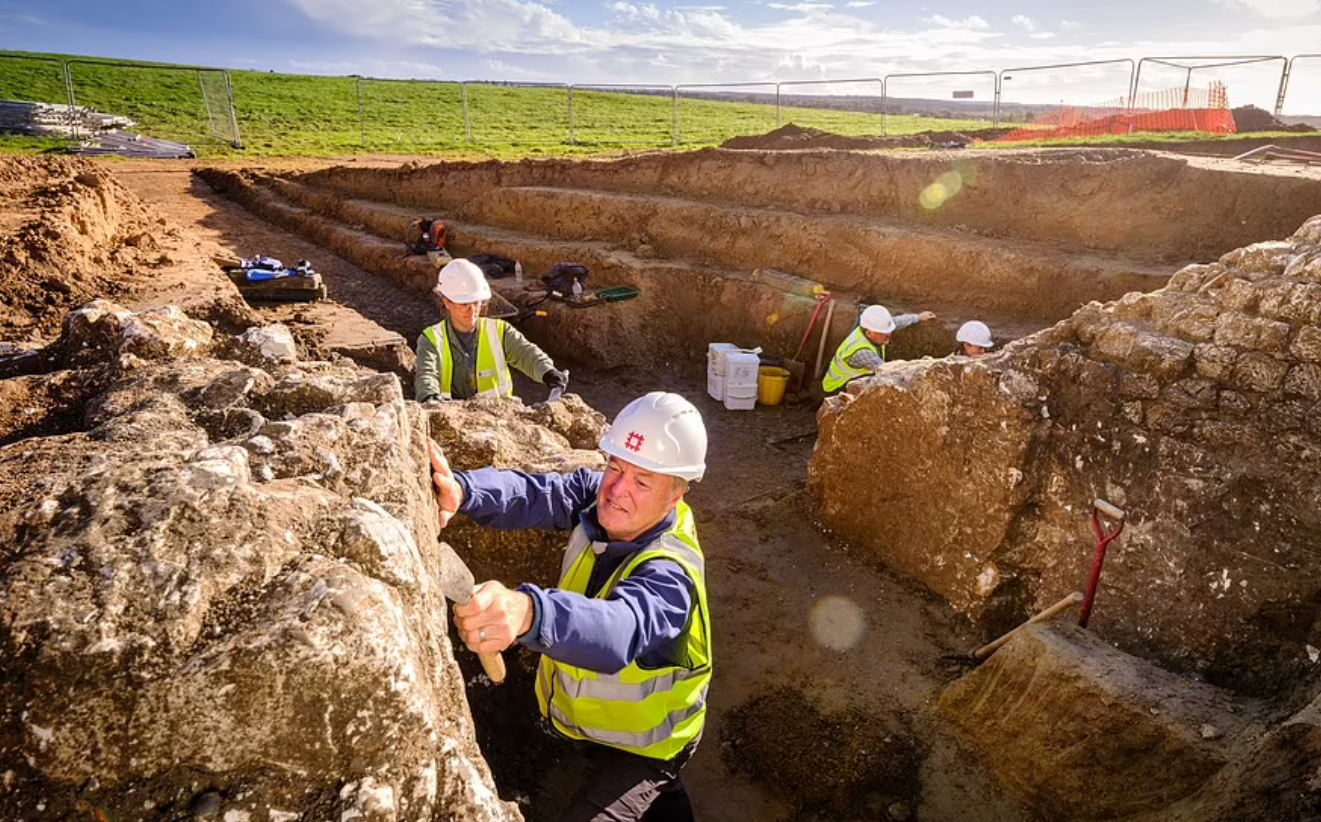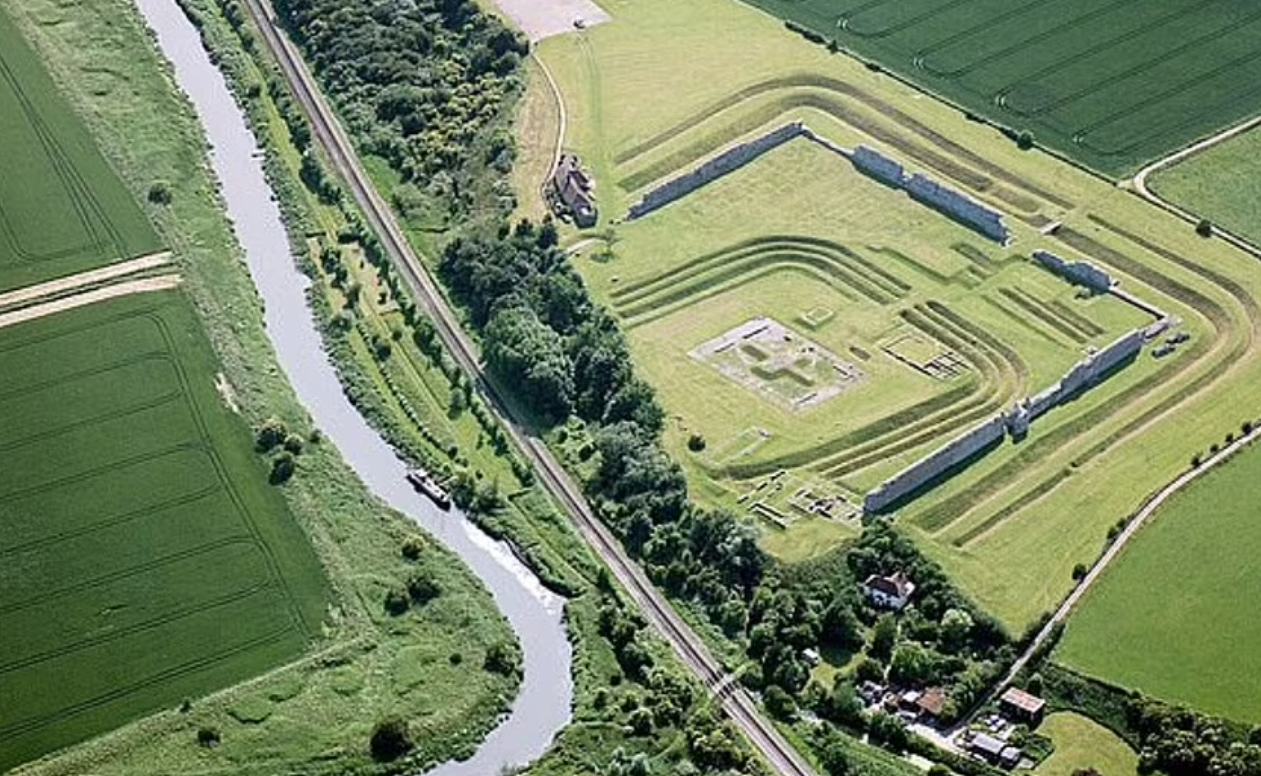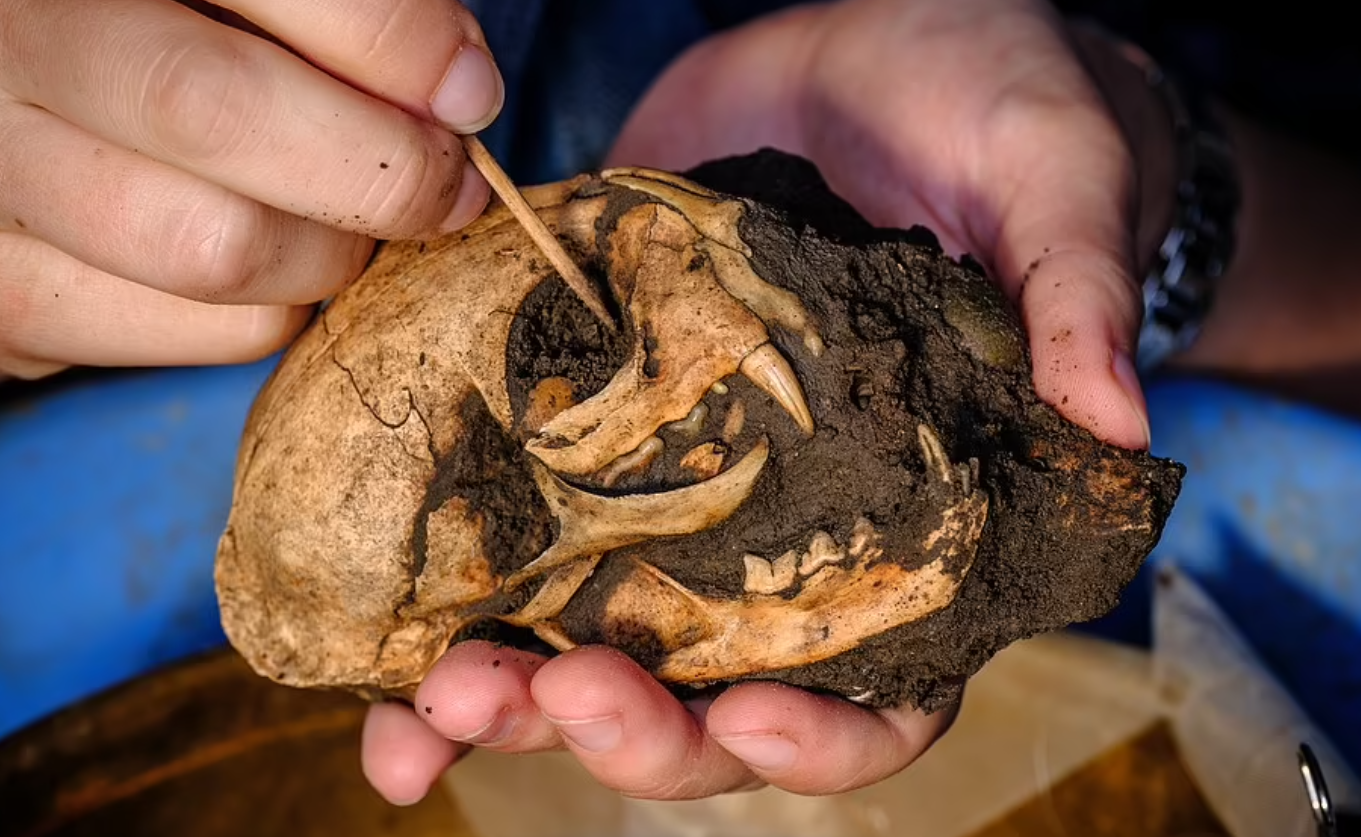Life
Archaeologists found a room where Roman gladiators rested before fights: it is 2,000-year-old. Photo
Archaeologists have come across a Roman settlement on the coast of British Kent where people lived about two thousand years ago. During the excavations, experts found a room where gladiators rested or prepared for battle in the arena of the local amphitheater.
According to The Guardian, the discovery was made in the village of Richborough. There, locals once spent their evenings organizing gladiatorial competitions, hunting wild animals in the surrounding forests, and executing criminals (to see the photo, scroll to the bottom of the page).
The archaeologists said that during the excavations they also came across the skeleton of a domestic cat, coins, jewelry, fragments of pottery, and many bones of dead animals.
They called the amphitheater one of the most impressive structures. It could accommodate up to five thousand people and apparently served as a gathering place not only for the inhabitants of ancient Richborough but also for people living in neighboring towns.
"Going to such an amphitheater in those days is comparable to going to a blockbuster movie today," historian Paul Pattison of English Heritage says.
He noted that he and his colleagues were particularly interested in the room located near the main stage. In his opinion, it was used to keep wild animals and people before they were released into the arena.
The outer walls of the building were about six meters high and were constructed using sod. The inner wall was made of limestone.
"Moreover, there are traces of paint on the arena wall. Most likely, there were paintings, perhaps scenes of what was happening in the amphitheaters themselves. We don't have other details, but we have paint on the walls, and that's a start," Pattison emphasized.
The researchers also found coins, jewelry, fragments of ceramics and bones of killed animals. All this shows that the city of Richborough was inhabited by civilians throughout the Roman period in Britain, they believe.
According to the experts' description, the amphitheater was located on a small hill and probably operated until the end of Roman rule, around 410 AD. Richborough played an important role for the Roman army. It was the main landing point for the troops of Emperor Claudius on the English Isles.































